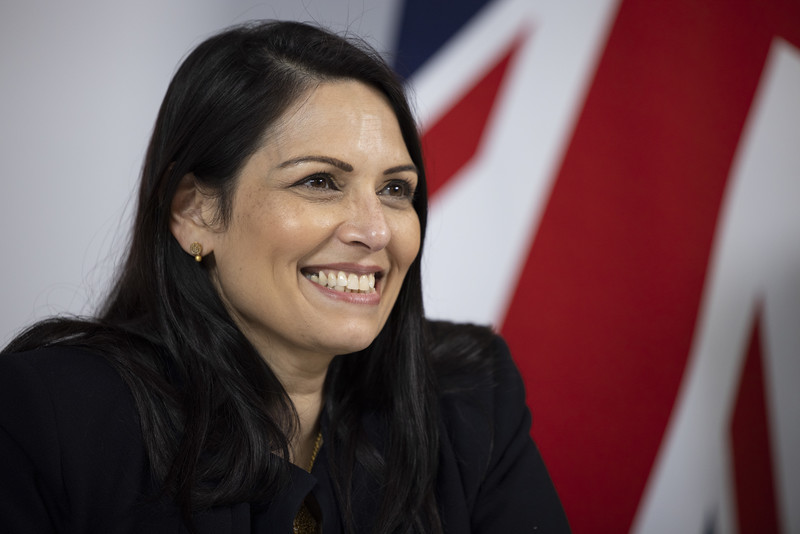New Delhi: United Kingdom’s Home Office, led by Secretary Priti Patel since July 2019, has emerged as the surprise saviour of absconding Indian businessman Vijay Mallya. Mallya, despite exhausting all his legal remedies to escape deportation to India from UK, is still a long time away from his possible deportation to face the plethora of charges related to embezzlement of public money that he is facing in this country. Mallya had fled India in March 2016.
Sources aware of the matter told The Sunday Guardian that during the recent high-profile visit to India by British Prime Minister Boris Johnson last month, nothing “positive” has emerged as far as bringing back Mallya was concerned, which was now more of a “political decision rather than a legal one”.
On 3 February 2019, the then British Home Secretary Sajid Javid signed the order for the extradition of liquor baron Vijay Mallya to India. Following this, Mallya moved the High Court, which in April 2020 ruled against him, allowing his extradition to India to face the criminal charges of embezzling Rs 9,000 crore of public money. After exhausting all his legal remedies available under the United Kingdom’s laws, Mallya then appealed to Patel’s office. It is not yet clear when Mallya formally filed an appeal with Patel, but it is understood that it was after the High Court order of April 2020.
It was in January 2021 that the counsel of Mallya stated that he had filed an appeal with the Home Department. However, 16 months later, despite the Government of India giving a sovereign guarantee that he would be taken care of in an Indian prison, Patel is yet to deny or allow his extradition, thereby leading to questions among relevant circles in New Delhi as to why the UK government was trying to save an offender who has been found guilty by courts both in India and in the UK.
One of the possibilities behind the UK government continuing to sit on Mallya’s request, thereby giving a respite of sorts, is likely to be Johnson and Patel exploring the option of granting political asylum to Mallya. The Sunday Guardian sought a response from the office of Patel on the reasons behind the delay in taking a call on Mallya’s appeal. However, no response was received till the time this report went to press.
In October 2020, the then British High Commissioner to India, Philip Barton had announced that his government couldn’t set a timeline for extradition of Mallya. Barton, who served in India till August 2020, is now the Permanent Under-Secretary of the Foreign, Commonwealth and Development Office.
While dismissing Mallya’s appeal, the UK High Court in April 2020 had said: (a) The three loans were disbursed as the result of a conspiracy between the named conspirators; (b) The loans were made despite KFA’s (KingFisher Airlines) weak financials, negative net worth and low credit rating; (c) The loans were made despite the fact that KFA, as a new customer, did not meet the norms of IDBI’s Corporate Loans Policy; (d) The Appellant was party to false representations to induce the loans that funds would be inducted by way of unsecured loans, global depository receipts and equity; (e) The Appellant was party to false representations about inward investment, an exaggerated brand value, misleading growth forecasts, inconsistent business plans (including the January 2009 business plan); (f) The Appellant was party to the offer of “symbolic” and “grossly inadequate security” in the form of a negative lien on 12 hire purchase aircraft, despite knowing that KFA would not get title to them during the period of the loan; (g) The Appellant’s dishonest intention not to repay the loans is shown by his later conduct in trying to avoid the personal and corporate guarantees.
Priti Patel’s UK Home Office turns saviour for fugitive Vijay Mallya
- Advertisement -

